PSNI surveillance 'targeted police ombudsman's official'
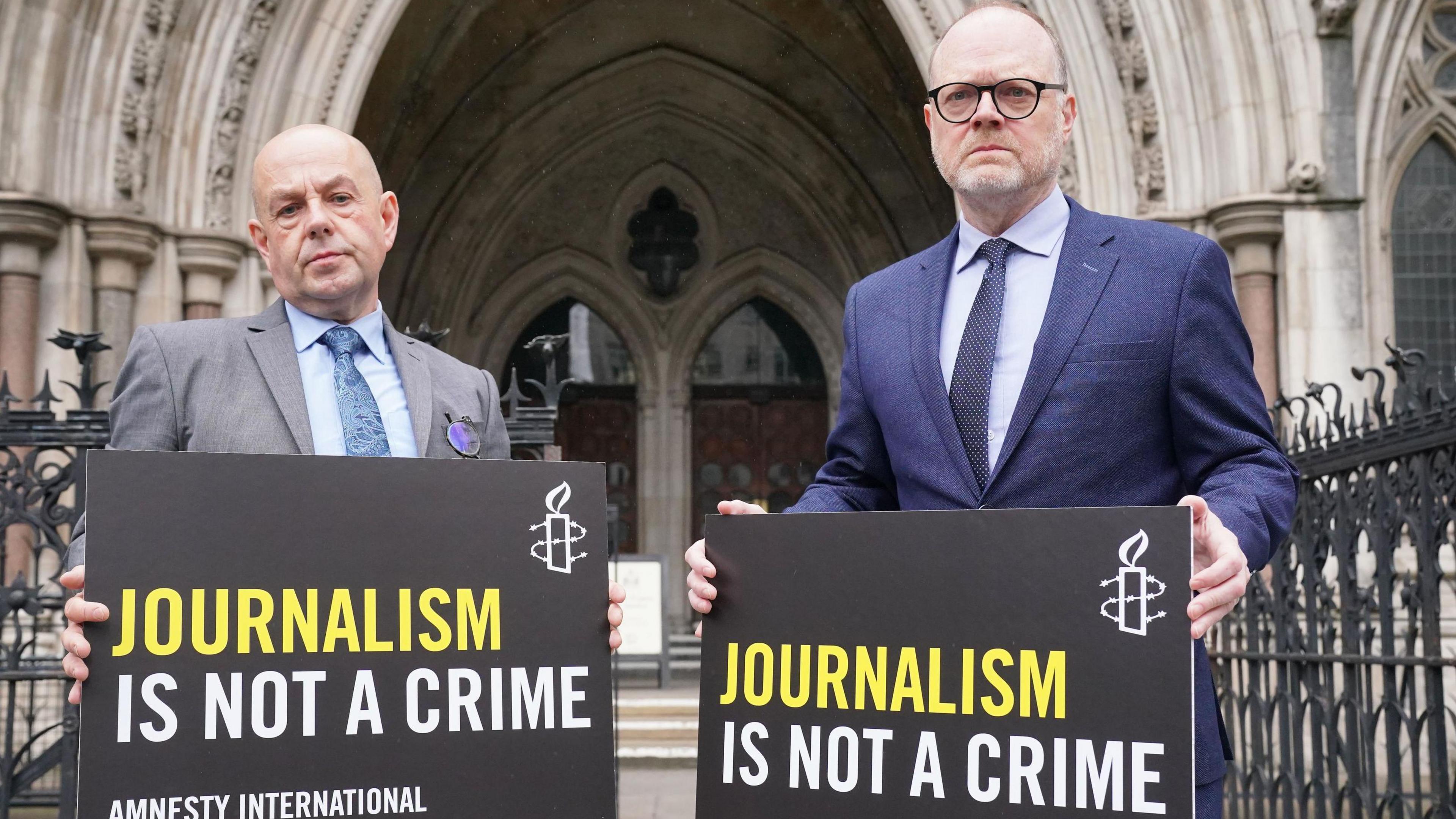
Journalists Barry McCaffrey (left) and Trevor Birney outside the Royal Courts of Justice, in London
- Published
A police surveillance operation targeted an official at the office of Northern Ireland's Police Ombudsman who was believed to be leaking secret documents to two journalists, a court has heard.
The Investigatory Powers Tribunal has begun a landmark hearing to determine whether secret monitoring of journalists to identify their sources was unlawful.
The case has been brought by Barry McCaffrey and Trevor Birney who were arrested over the suspected theft of files in 2018.
They had been working on a documentary about the Loughinisland killings.
Six Catholic men were shot dead by loyalist gunmen as they watched a World Cup match in the County Down village in 1994.
The documentary examined the Royal Ulster Constabulary's handling of the killings by the Ulster Volunteer Force (UVF).
Darren Ellis, who led the investigation into the alleged theft of documents from the Police Ombudsman’s Office, gave evidence to the tribunal.
The former police officer from Durham Constabulary said he was not trying to identify their source but someone “suspected of committing criminal activities”.
Mr Ellis said his investigation was “founded on legality” and “driven by ethics and accountability”.
It was put to him by the journalists’ barrister Ben Jaffey KC that having watched No Stone Unturned - the documentary about the Loughinisland killings - he had thought the film was “sensational”.
At the time he had written in his police notebook that it would lead “uneducated viewers to reach inaccurate conclusions”.
He denied this and insisted his investigation “wasn’t personal” and his focus was on finding out how secret documents had appeared in the film.
A direct surveillance operation of an individual who worked in the Police Ombudsman’s Office was set up following the journalists’ arrests.
The authorisation to approve the surveillance said the objective was to see if that person met Barry McCaffrey or Trevor Birney, to record any conversation and to intercept documents that might be passed to them.
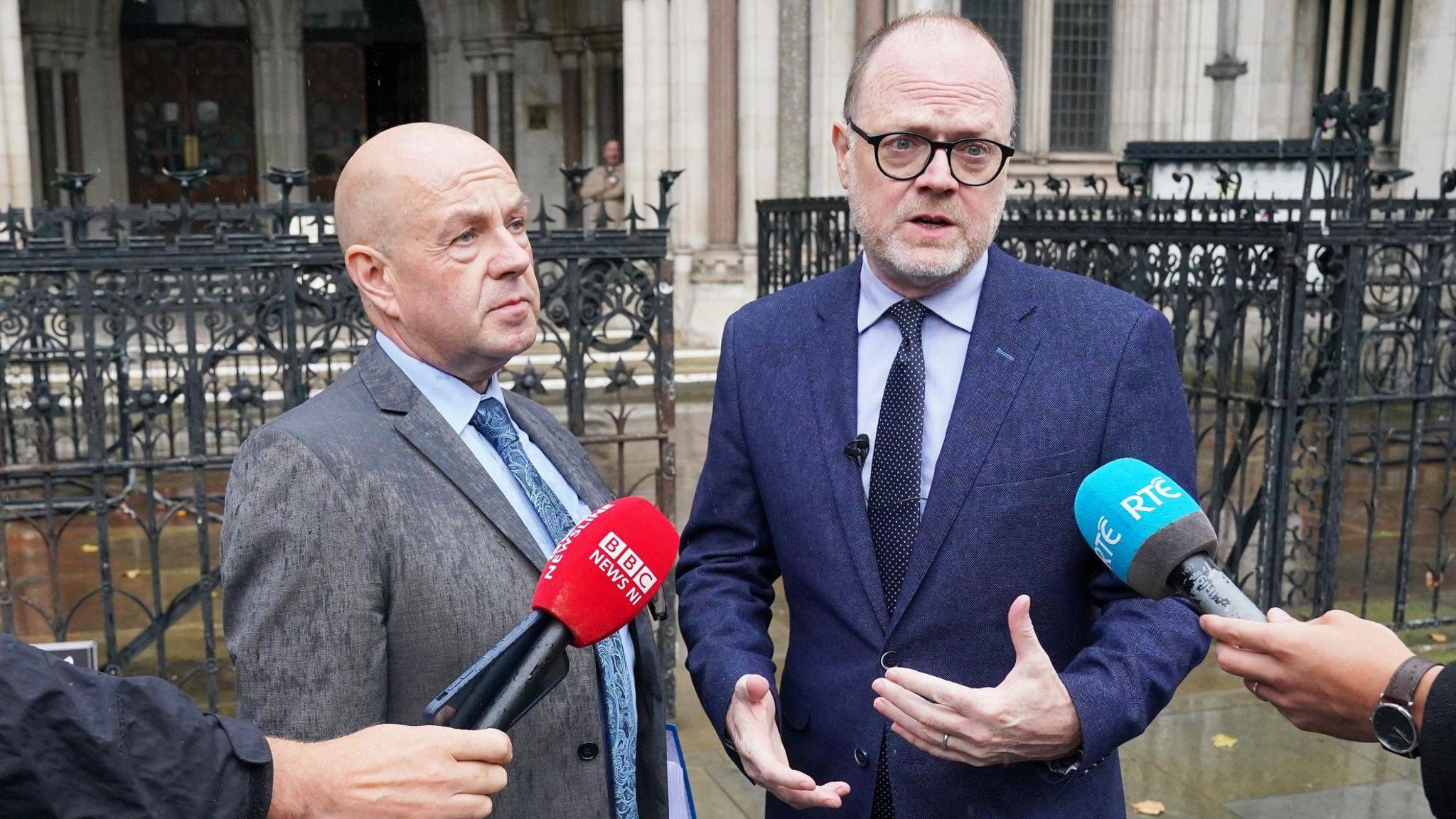
Barry McCaffrey and Trevor Birney brought their case after their homes and offices were raided in 2018
Mr Jaffey asked the former police officer if the actual strategy had been to arrest the journalists and see if that led them to contact their source during the surveillance operation.
“You use the word source, I use the terminology someone suspected of committing criminal activities,” Mr Ellis responded.
Search warrants 'inappropriate'
Barry McCaffrey and Trevor Birney brought their case to the Investigatory Powers Tribunal (IPT) after their homes and offices were raided in 2018.
They later won a court case which found that warrants used to search their homes had been “inappropriate”.
The judge said they had acted properly in protecting their sources in a lawful way and the PSNI later paid damages amounting to £875,000.
The journalists are arguing that there were repeated and unjustified attempts by the police to identify their sources.
They say the extent of their conduct to unmask their confidential sources has been kept secret for many years.
The IPT has heard claims that multiple journalists were routinely monitored in an attempt to identify their sources.
It is seen as a test case on press freedom in the UK and whether legal safeguards are sufficient and effective.
The Police Service of Northern Ireland (PSNI), Durham Constabulary, Metropolitan Police, the intelligence and security agency GCHQ and Secretaries of State are legally represented.
The hearing at the Royal Courts of Justice in London is scheduled to last four days.
- Published10 May 2024
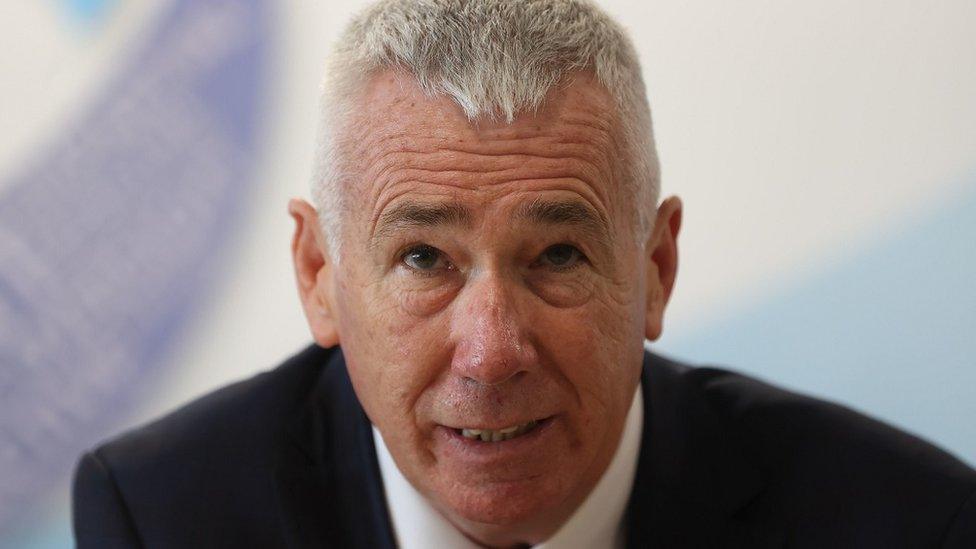
- Published4 June 2024
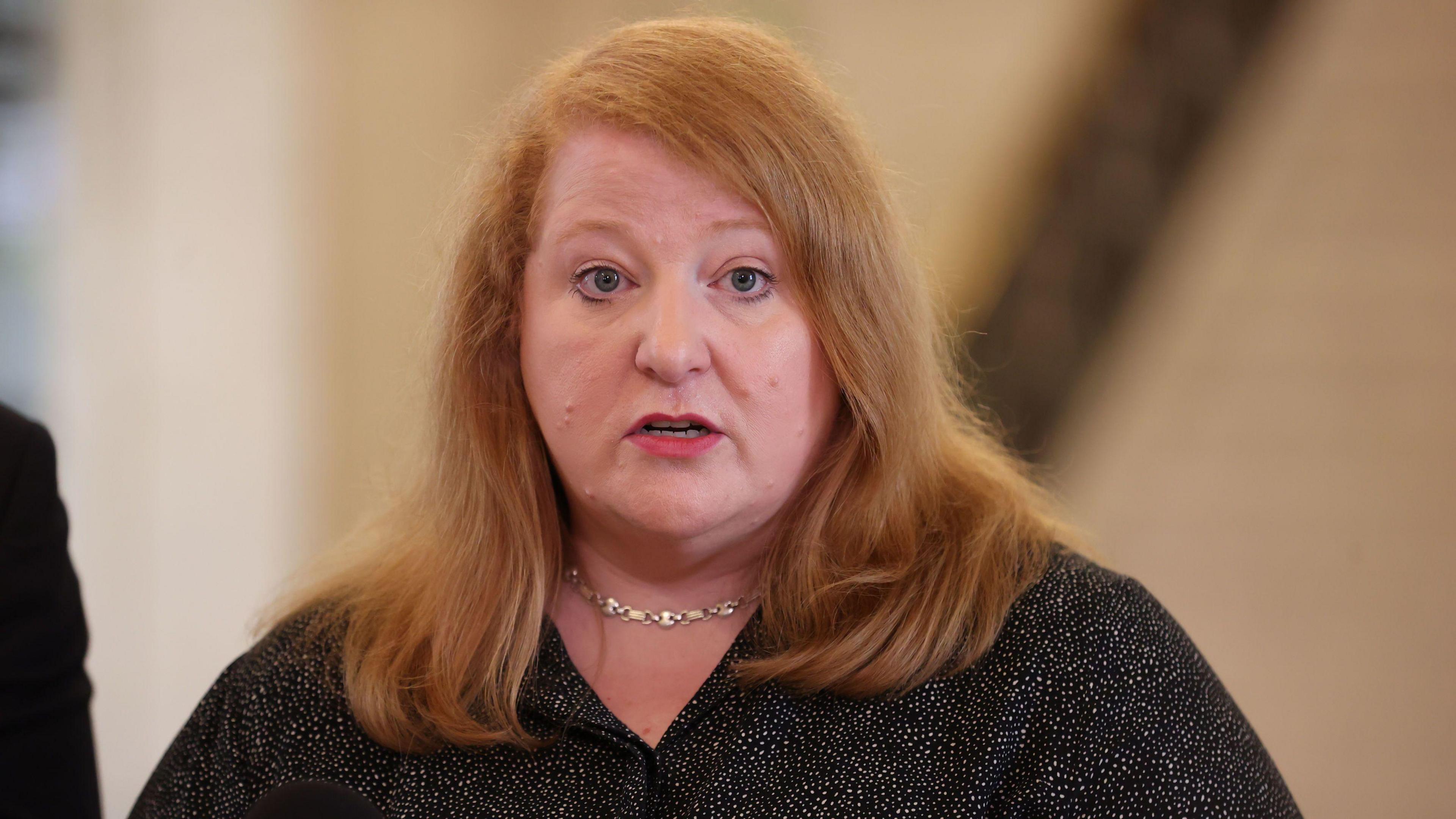
- Published18 July 2024
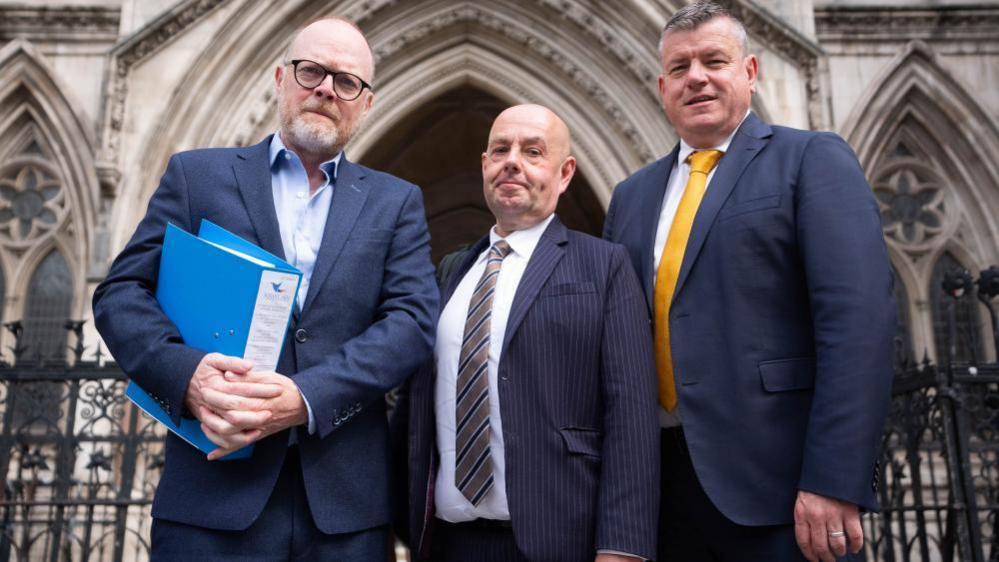
- Published27 November 2020
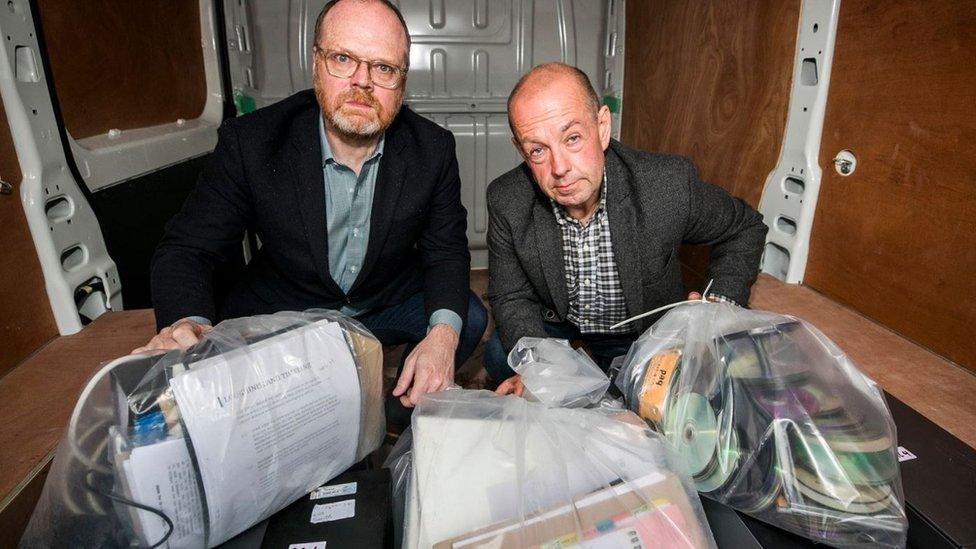
- Published28 February 2024
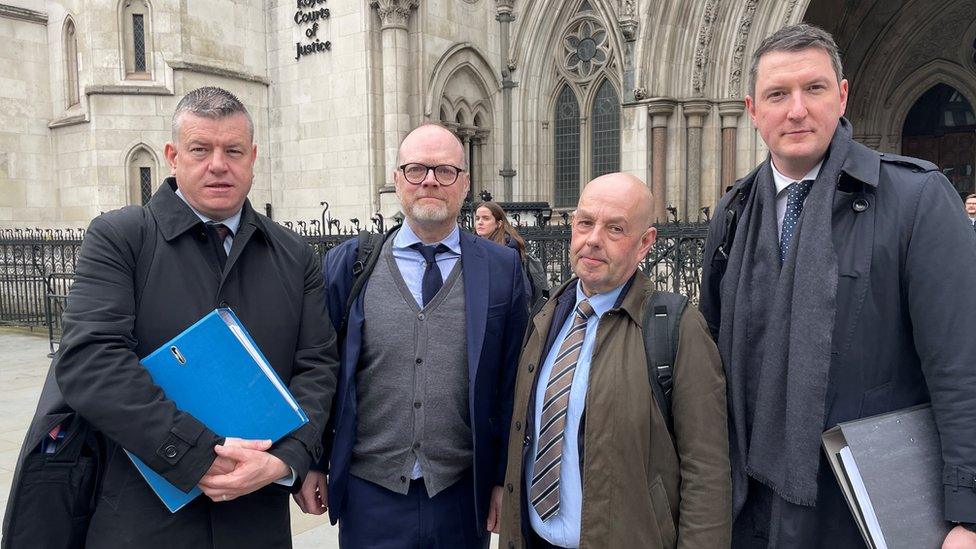
- Published6 June 2024
